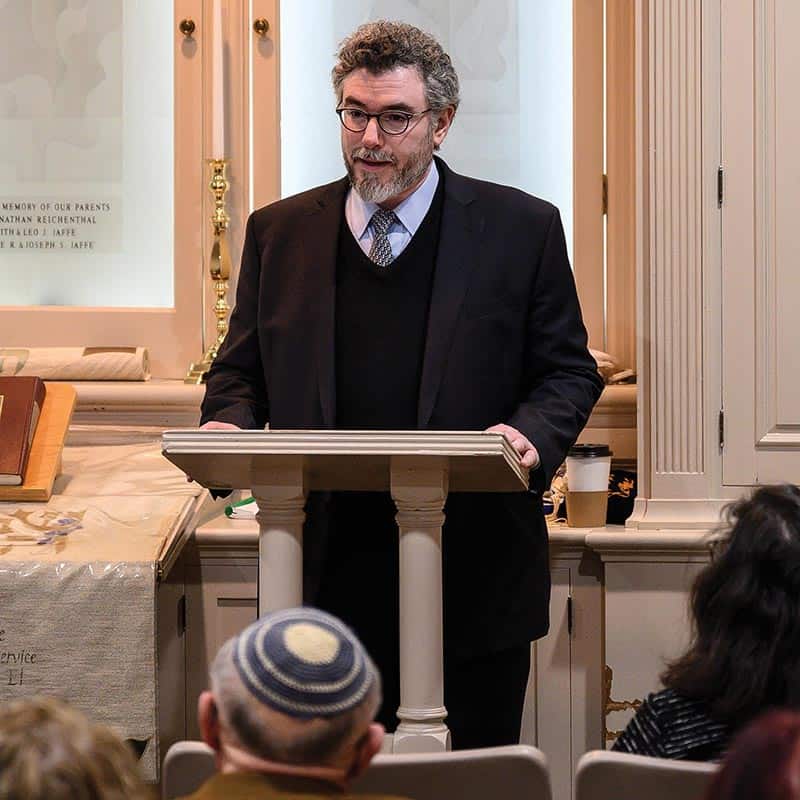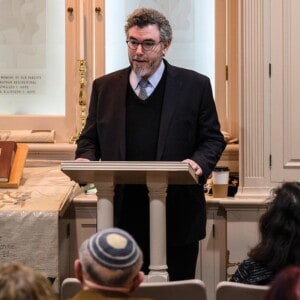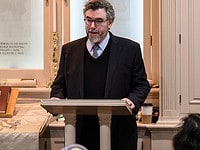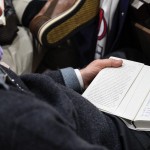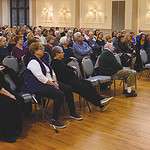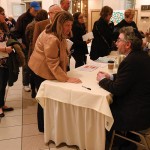In honor of International Holocaust Remembrance Day on January 27, United Jewish Federation of Tidewater’s Holocaust Commission partnered with The Milton “Mickey” Kramer Scholar-In-Residence Fund of the Congregation Beth El Foundation’s Tidewater Together series to bring Rabbi Ariel Burger to the community to share thoughts about his book Witness: Lessons from Elie Wiesel’s Classroom.
Ariel Burger met Holocaust survivor and Nobel Laureate, Elie Wiesel as a teenager, and their relationship evolved over time. Burger sought counsel on matters of intellect, spirituality, and faith while navigating his own personal journey from boyhood to manhood, from student to assistant, to rabbi, and in time, teacher.
There is no doubt that Elie Wiesel was one of the greatest thinkers of the 20th century. But according to Rabbi Burger, who knew him well, he would probably have preferred to be known for his teaching than his thinking. The world was truly his classroom, and those who were lucky enough to be his students first hand were forever changed.
At Congregation Beth El, Rabbi Burger shared some of Wiesel’s wisdom and insights, with the humility and grace that were associated with his mentor. He weaved biblical stories and Talmudic tradition into prescriptions for how we as a community of good people must act to improve the world. We must care about language because how we speak affects how history evolves. Burger cited Wiesel’s furor, “the only time I ever saw him this angry,” that the world referred to what was happening in Darfur as a “civil war,” rather than what it really was, which was a genocide. Wiesel led the charge for the community of nations to recognize and label the situation that way, and only then did the response to the horror change.
Burger told a community gathering of 200 people that according to Wiesel, “Any solution to humanity’s problems must have education as its central component.” This was after he had spoken to a group of 40 local educators specifically about the way Wiesel viewed teaching. His eight principles of transformative moral education struck chords with many in that audience.
Lisa Kilczewski, an English teacher at Old Donation School in Virginia Beach, brought two colleagues with her, after having a great experience at the Holocaust Commission Educators’ Conference this summer. They were all inspired. “I’ve printed [the eight principles] out for all of us to keep. We left with our minds swirling about our curriculum, specifically how to change and refine what we started this year, and how to incorporate what we heard from Rabbi Burger,” says Kilczewski.
- Rabbi Ariel Burger shares his 8 Principles of Transformative Moral Education.
- Chris Kraus, a teacher in Hampton City schools, adds notes to his copy of Witness: Lessons from Elie Wiesel’s Classroom.
- Rabbi Burger speaks to a diverse group of 200 community members at Congregation Beth El.
- Gail Flax, co-chair of the Holocaust Commission Educator’s Conference, has her book signed by Burger.
Kitty Wolf, director of the Religious School at Ohef Sholom Temple, heard Rabbi Burger say that the Holocaust forces us to ask moral questions. “To do this with our students, [he suggested] we need questions that start with life and move toward Torah, and not the other way around,” she says. Her favorite of the eight principles was to “model and teach active hope” which included “looking around you for the outstretched hand” of someone in need, and “meet students where they are, not where we want them to be.”
Esther Diskin of Norfolk Academy heard both presentations and took different things from each. “I particularly appreciated his guidance that we should ‘Teach students to become comfortable with questions that may have no answers. Some questions do not have answers.’ That speaks to the need to teach students that they must wrestle with morality and appreciate that questions sometimes lead to more profound questions, and that journey is a worthy one, even if an answer cannot,” she says.
Wiesel said, “when you hear a witness, you become a witness.” During the community Q&A, Burger was asked who will be able to follow in Elie Wiesel’s footsteps. He replied that “when you lose a general, everyone else gets a promotion.” It is up to us all to witness his teachings, and carry on his message and legacy.
– Elena Barr Baum, Mark Robbins Photography
The Milton “Mickey” Kramer Scholar-in-Residence Fund of the Congregation Beth El Foundation’s Tidewater Together series is a collaboration between the United Jewish Federation of Tidewater and area synagogues including B’nai Israel Congregation, Congregation Beth Chaverim, Congregation Beth El, Kehillat Bet Hamidrash, Ohef Sholom Temple, Temple Emanuel, Temple Israel, and Tidewater Chavurah, to provide opportunities to connect Jewishly on a variety of topics, offering something for everyone.
To learn more about Tidewater Together, or to register for upcoming events, visit JewishVA.org/TidewaterTogether, or contact Sierra Lautman, director of Jewish Innovation, at (757) 965-6107 or slautman@ujft.org.

